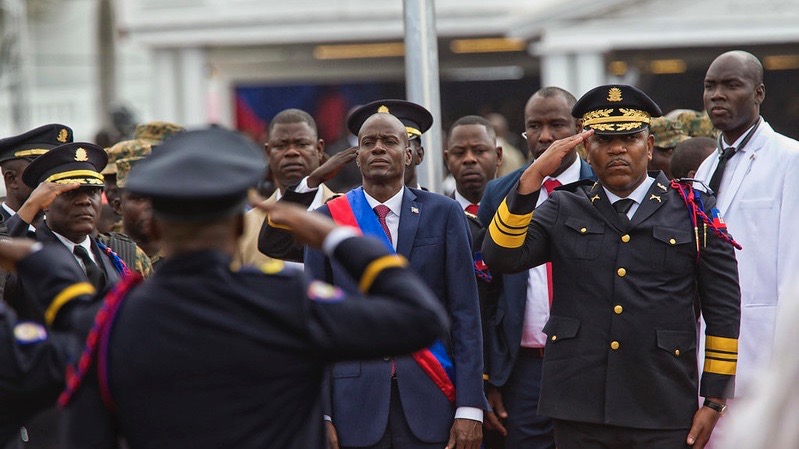Jovenel Moïse, the de facto president of Haiti, was assassinated at 1am on July 7 at his home. His wife and Haiti’s first lady, Martine Moïse, was also injured in the attack and has been hospitalized. The news was announced by the prime minister Claude Joseph through an official communique early on July 7. In a press conference, Joseph declared a state of siege and called for an extraordinary council of ministers.
According to the communique, the assailants have not been identified but are suspected to be Spanish-speaking. The official communique called for the population to remain calm and declared that the National Police and Army would be watching over the nation’s security.
The killing comes at a time of rapidly increasing instability and insecurity in the country. A few days ago, Moïse’s government had announced that the constitutional referendum that had been scheduled for June 29 was postponed till September 26 when legislative and presidential elections are set to be held. The referendum itself had been met with widespread rejection from all sectors of Haitian society from the Episocopal Conference to social movements and left political parties as it directly violated the 1987 democratic institution.
Moïse, of the Tet Kale party had a controversial term in office which was marked by many attacks on Haiti’s institutions. He held on to power despite the fact that his term had ended on February 7, 2021. Massive protests broke out following his decision to continue as president and his rule was termed a dictatorship.
Furthermore, Haiti’s parliament, which was dominated by opposition parties, was suspended in January 2020 after Moïse repeatedly postponed legislative elections. Judges who opposed Moïse’s actions were dismissed and those supportive of the government were appointed.
His rule also saw a rise in insecurity. According to the National Network for the Defense of Human Rights in Haiti (RNDDH), in the past three years, 12 massacres were carried out by illegal armed groups and in the past several weeks, over ten thousand people were displaced from poor and working class neighborhoods in Port-au-Prince due to the increase in violence. On June 30, 15 people were assassinated, including feminist activist Antoinette Duclaire and journalist Diego Charles.
As of now, there is no conclusive information about who could be behind the assassination of Jovenel Moïse, and analysts have stated that due to the growing instability and widespread opposition it is hard to pinpoint just one force. Analysts have signaled that the assassination will likely deepen the ongoing crisis in Haiti.





